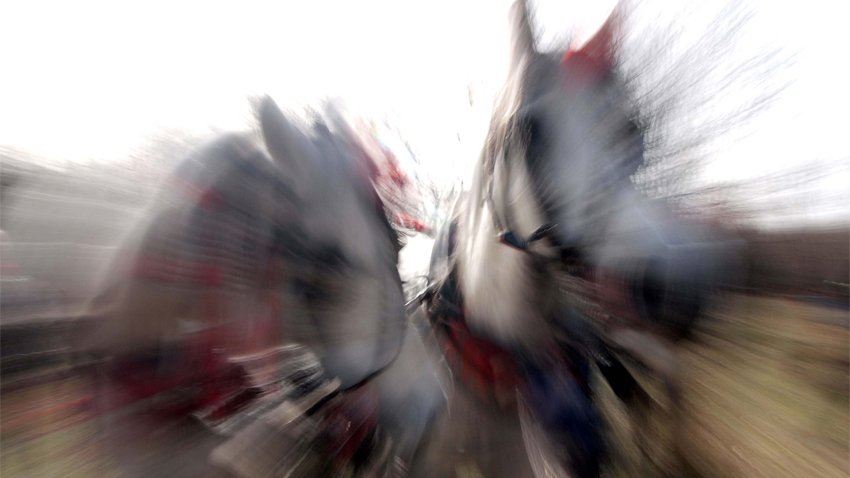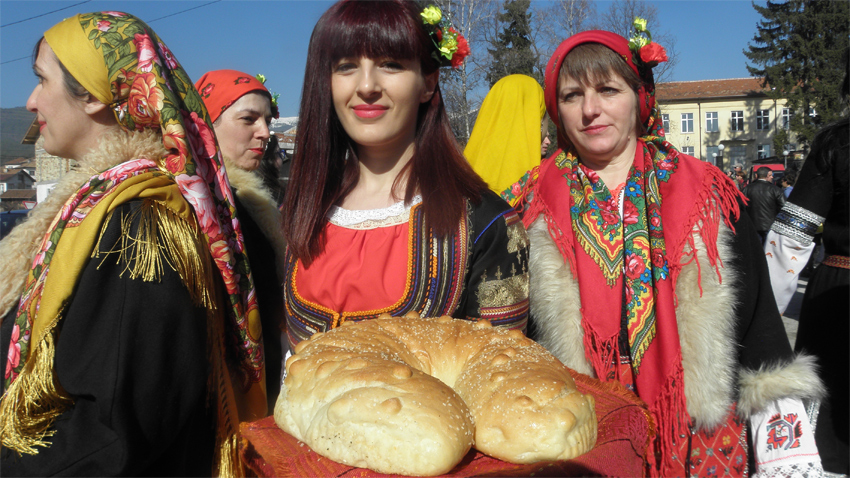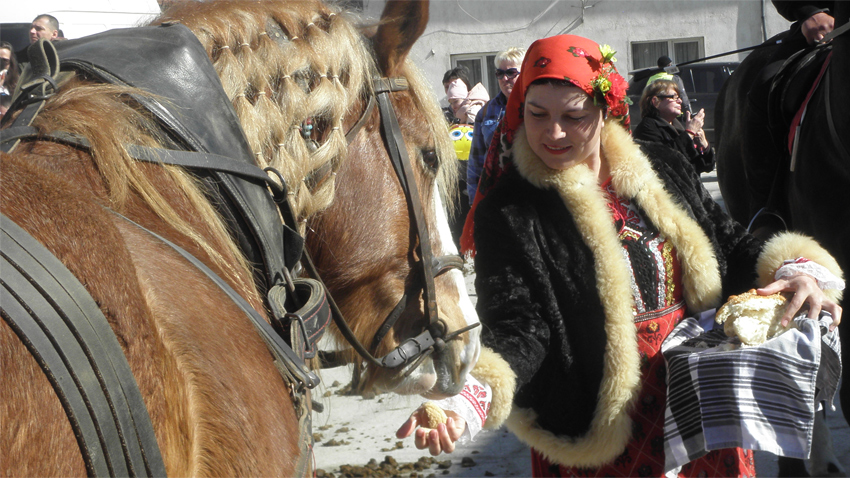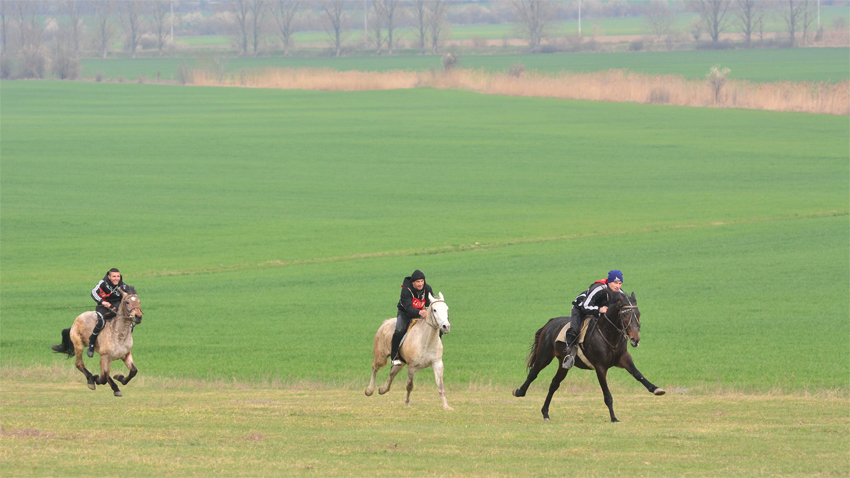 Todorovden, one of the most colorful folk festivals is celebrated on the first Saturday of the Great Lent. It is preceded by Todor'sweek, also called hungry, or even “black week”. During this week, a strict fast is observed. According to folk beliefs, this is a period when people's and animals’ health, as well as crops are in jeopardy, as "talasam” or goblins and other unclean forces roam at night. In some places they called these scary creatures "St. Todor on white horse and grandmother Tudoritsa". These names are another example of intertwining pagan beliefs with Orthodox traditions. Let's recall that in the Early Middle Ages Bulgarians worshiped Saint Todor, unifying the cult of the holy martyrs St. Theodore Stratelates (celebrated by Christians on February 8) and Theodore Tyron (his feast day is February 17 in the Orthodox calendar and November 9 in the Catholic one).
Todorovden, one of the most colorful folk festivals is celebrated on the first Saturday of the Great Lent. It is preceded by Todor'sweek, also called hungry, or even “black week”. During this week, a strict fast is observed. According to folk beliefs, this is a period when people's and animals’ health, as well as crops are in jeopardy, as "talasam” or goblins and other unclean forces roam at night. In some places they called these scary creatures "St. Todor on white horse and grandmother Tudoritsa". These names are another example of intertwining pagan beliefs with Orthodox traditions. Let's recall that in the Early Middle Ages Bulgarians worshiped Saint Todor, unifying the cult of the holy martyrs St. Theodore Stratelates (celebrated by Christians on February 8) and Theodore Tyron (his feast day is February 17 in the Orthodox calendar and November 9 in the Catholic one).
There are many bans during Todor’s Week, affecting mostly women - they should not be late in the evening, girls do not gather to chatter, no washing boards are used; one does not plow or sow in order for people and harvest to remain protected fromlighting and hail. As sung in a popular folk song, St. Todor punishes those who do not respect abstinence:
“This Todor’s week one does not eat, does not drink,
does not spin, does not weave ...
If girls and lads gather, St. Todor's rides his horse on the roofs
and tiles fall on youths’ heads…”
During this particular week it is also forbidden to wash and dry clothes in order to avoid certain diseases such as deafness, "drying up" of parts of the body, etc. Other bans and rituals are performed to protect people from madness and animals from various diseases.
During the feast, before sunrise, girls and brides prepare ritual bread, often in the shape of a horse or horseshoe. They put salt, garlic and walnuts on them. While giving them to neighbors and relatives, women run, kick and make noises, imitating horses. It is believed that more horses and children are born this way.

Todorovden is among the holidays linked to the transition from winter to summer. According to popular ideas, on his day, St. Todor puts a glowing ember in the earth and warms it. Then he takes off his nine winter coats and goes to the Lord to pray for the coming of summer. The saint is considered to be the patron of horses.He himself rides “a white horse with gold horseshoes and silver nails." That is why men give a promise to their horse, preparing it for the traditional horse races onTodorovden that if the horse won, the owner wouldput “silver on the hooves and gold on the bridle".

The feast is among the most popular ones even today. Horse races are organized in Bulgarian towns and villages and winners must bring guests at home. In many places, ritual dishes are prepared for the saint.People who bear the names Todor, Todorka, Theodor, and Theodora also celebrate.

English: Alexander Markov
Photos: BGNESAll Bulgarian masquerade games originate from the ancient rituals related to the birth of the sun around Christmas. With the adoption of Christianity, in order not to defile the newborn God, the custom was blurred. In the western..
The Roma community in Bulgaria is celebrating Vasilyevden /or Vasilitsa, Bango Vasili (literally the Lame Vasil)/, also known as the Roma New Year , reports the Amalipe Foundation. The Roma New Year combining in its traditions Christmas with St...
Today is Babinden (Midwives' Day) - one of the most beloved and authentic Bulgarian holidays deeply rooted in local folk tradition . Celebrated on 8 January in the new style calendar and January 21 in the old style, it is dedicated to the women who used..

+359 2 9336 661
